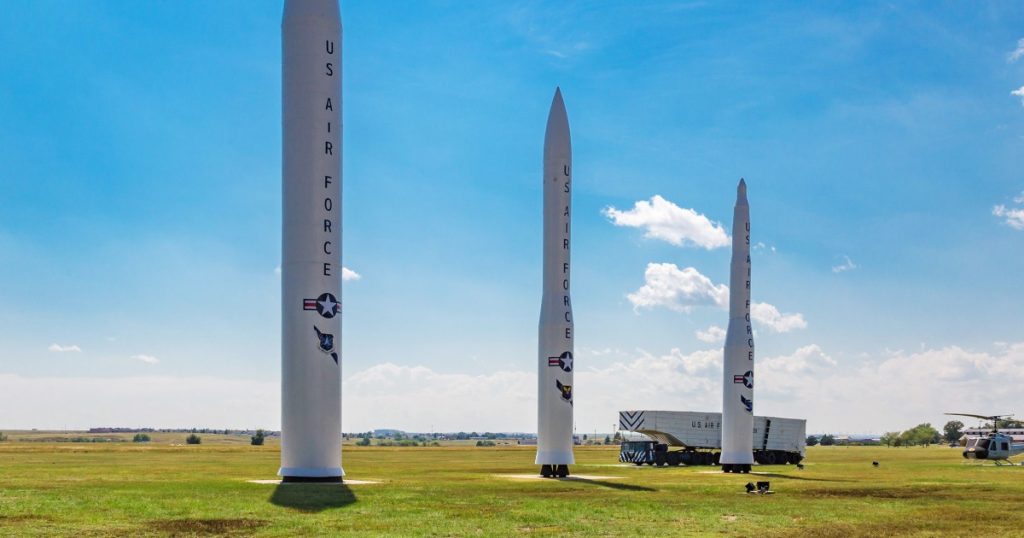President Joe Biden issued an order on Monday requiring a Chinese-backed cryptocurrency mining company, MineOne, to divest from land near a Wyoming nuclear missile base, citing national security concerns. The company had acquired the property in June 2022, placing its operations within a mile of Francis E. Warren Air Force Base, a strategic missile base. The White House expressed concern that MineOne’s site contained foreign-sourced equipment potentially capable of facilitating surveillance and espionage activities. Biden stated that there was credible evidence to suggest that the company, mainly owned by Chinese nationals, could pose a threat to U.S. national security.
The presidential order gave MineOne 120 days to sell the land and remove certain equipment and improvements from the property. This action from the Biden administration is part of a broader crackdown on Chinese companies in the United States amid rising tensions between the two countries. In April, Biden signed a law mandating the divestiture of the social media platform TikTok from its Chinese parent company, ByteDance, also citing national security concerns. Additionally, new tariffs were recently imposed on several Chinese imports, including electric vehicles and medical supplies. The order against MineOne followed an investigation by the Committee on Foreign Investment in the United States (CFIUS), which is responsible for reviewing corporate deals for national security risks. This agency was granted authority in 2018 to assess property transactions near sensitive U.S. facilities like Francis E. Warren Air Force Base.
In September, Biden issued an executive order directing CFIUS to consider more national security risk factors in their assessments. The agency is also investigating TikTok. Treasury Secretary Janet Yellen emphasized the importance of CFIUS in safeguarding national security, stating that the move against MineOne highlights the critical role played by the agency in preventing foreign investment from undermining U.S. security. China, on the other hand, has also increased scrutiny of U.S. companies, citing national security concerns of its own. Recent changes to Chinese laws now include a broader category of “work secrets” to prevent sharing state secrets with foreign entities.
The situation between the U.S. and China reflects broader geopolitical tensions and concerns regarding national security in the context of economic and technological competition. Both countries are implementing measures to safeguard their interests and prevent threats to their respective security. The Biden administration’s actions against MineOne and other Chinese companies demonstrate a firm stance on protecting U.S. national security interests, especially in critical sectors like defense and technology. The involvement of CFIUS and other government agencies in reviewing and regulating foreign investments underscores the importance of national security considerations in business transactions, particularly those involving sensitive locations or technologies.
The ongoing scrutiny of Chinese companies in the U.S. and U.S. companies in China underscores the complex dynamics of the bilateral relationship between the two countries. As tensions continue to escalate, both sides are taking steps to protect their interests and limit potential vulnerabilities. The use of executive orders, legislation, and regulatory mechanisms to address national security concerns reflects the evolving nature of economic and security challenges in an increasingly interconnected world. It remains to be seen how these measures will impact future business interactions and international relations between the U.S. and China.


